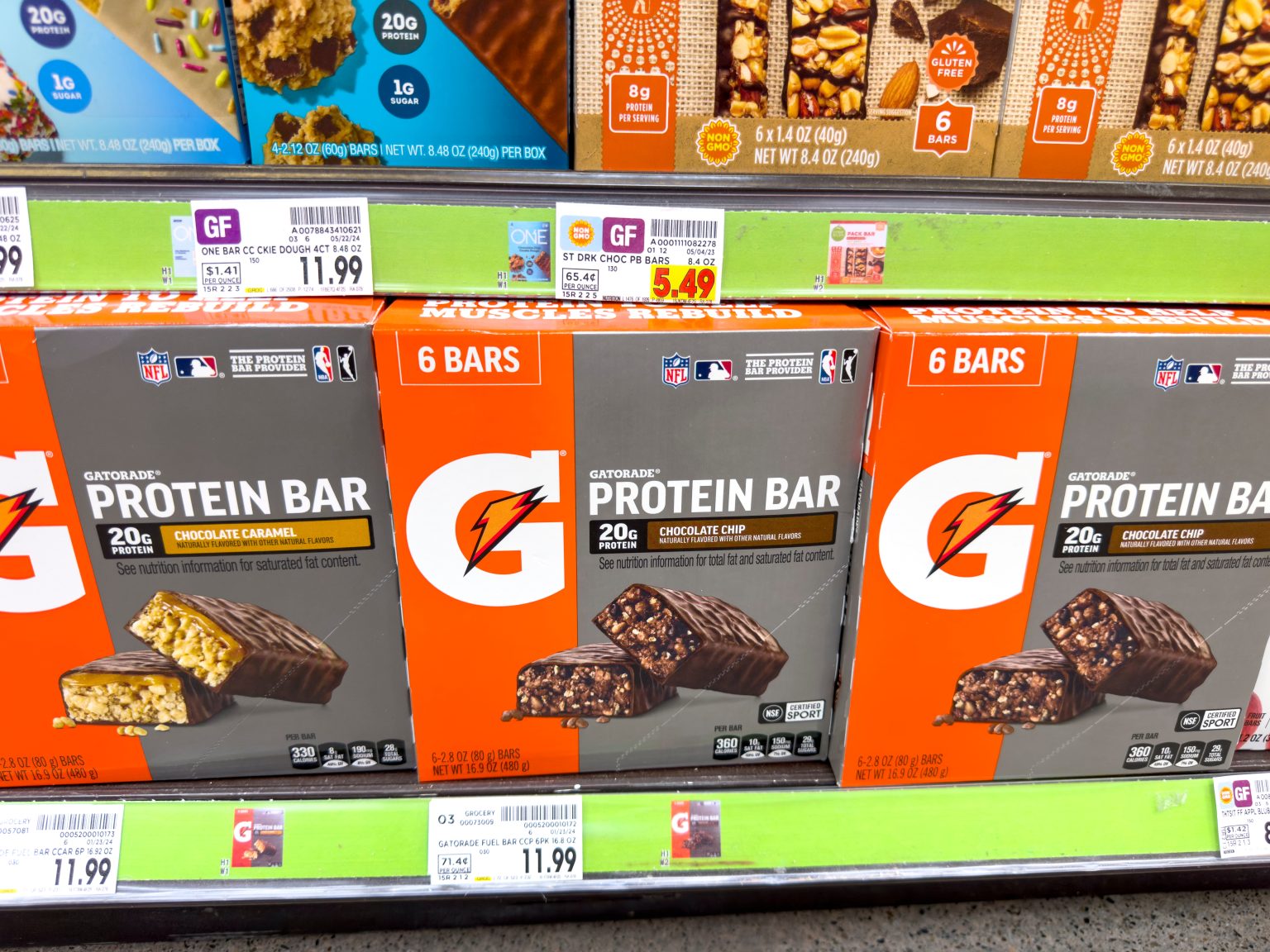A federal judge has ruled that snacking giant PepsiCo can be sued for allegedly misleading marketing of its Gatorade protein bars.
In a decision earlier this week, US District Judge Casey Pitts in San Jose, California, stated that three fitness enthusiasts leading a proposed class action had alleged that PepsiCo’s marketing and labelling of the bars was deceptive.
The bars are marketed as ‘good for you’, despite containing more sugar than protein and even more sugar than typical candy bars.
The plaintiffs argue that excessive consumption of added sugar is linked to high rates of obesity, diabetes, and cardiovascular disease. They claim they would not have purchased Gatorade bars, or would have paid less, had they understood the true nutritional content, and are seeking unspecified damages.
According to the American Heart Association, the maximum amount of added sugars that adult women and children should consume per day is 6 teaspoons, or approximately 24 grams – across their entire diet. For men, the maximum recommended amount is 9 teaspoons or 36 grams per day. A single serving of Gatorade Protein Bars exceeds the recommended daily limit of added sugar for women and children and accounts for 78% of the total recommended daily limit for men.
The court filing states: “Individually as well as collectively, the marketing statements and claims of PepsiCo create a health halo around the bar that leads reasonable consumers to perceive…that the product is good-for-you, and/or contributes to overall physical fitness and well-being; whereas in reality it contains excessive added sugars, which ingredient leading health authorities advise restricting or omitting from the diet in order to promote physical fitness and wellbeing.”
The cornerstone of the lawsuit lies in the product’s name itself, ‘Protein Bar’, which the court filing argues is deliberately misleading, as it capitalises on the growing consumer demand for protein-rich health foods without delivering the expected nutritional benefits.
Another point of contention in the lawsuit is the front label, or principal display panel (PDP), which prominently displays ‘20g Protein’. While this claim is true, the lawsuit argues that it overshadows the high sugar content, creating a misleading impression of the product’s overall health benefits.
The lawsuit highlights the use of bold statements on the packaging, such as ‘THE PROTEIN BAR PROVIDER’ and ‘PROTEIN TO HELP MUSCLES REBUILD’. These claims are presented in a way that reinforces the notion of the product being ideal for health-conscious individuals and athletes, despite its high sugar content.
According to the lawsuit, the product’s packaging features symbols and endorsements from professional sports leagues, such as the NFL, NBA, WNBA, and MLB. This association is argued to create a health halo effect, misleading consumers into believing the product contributes to a healthy lifestyle similar to that of professional athletes.
The lawsuit also points out that the packaging prominently displays the Gatorade brand symbol, leveraging the trust consumers place in Gatorade and its sports science institute. This branding is alleged to imply a level of scientific endorsement and healthfulness that the product does not genuinely offer due to its high sugar content.
This lawsuit against PepsiCo highlights several critical issues for the food and beverage manufacturing industry. Transparency in marketing and labelling is crucial, as consumers increasingly demand honesty about the products they consume. Misleading claims can erode consumer trust and lead to legal consequences.
The lawsuit suggests that there may be a need for stricter regulations regarding product naming and labelling to ensure that marketing statements accurately reflect the nutritional content. This would help prevent companies from using marketing tactics to present unhealthy products as beneficial health foods.
The complaint specifically states, “Intended to prevent deception, Federal Food & Drug Administration regulations require that foods be named after their characterising ingredients – which in this case is (or at the least includes) sugar – the dominant ingredient in Gatorade Protein Bars…While named ‘PROTEIN BAR,’ the Gatorade Protein Bars have 30% more sugar by weight than they do protein, yet PepsiCo fails to reference sugar in the name Protein Bar – let alone lead with it.”
“To the contrary, PepsiCo omits any reference to sugar as the key characterising ingredient from the Protein Bar name, and then piles on the deception with multiple other protein-related health and wellbeing claims, such as ‘Backed by Science,’ along with emblazoning the logos of professional sports leagues – whose members are virtually the fittest people on the planet – on the Product’s PDP.”
Maia Kats, a lawyer for the plaintiffs, said they welcomed Pitts’ decision and would continue pursuing their claims.

